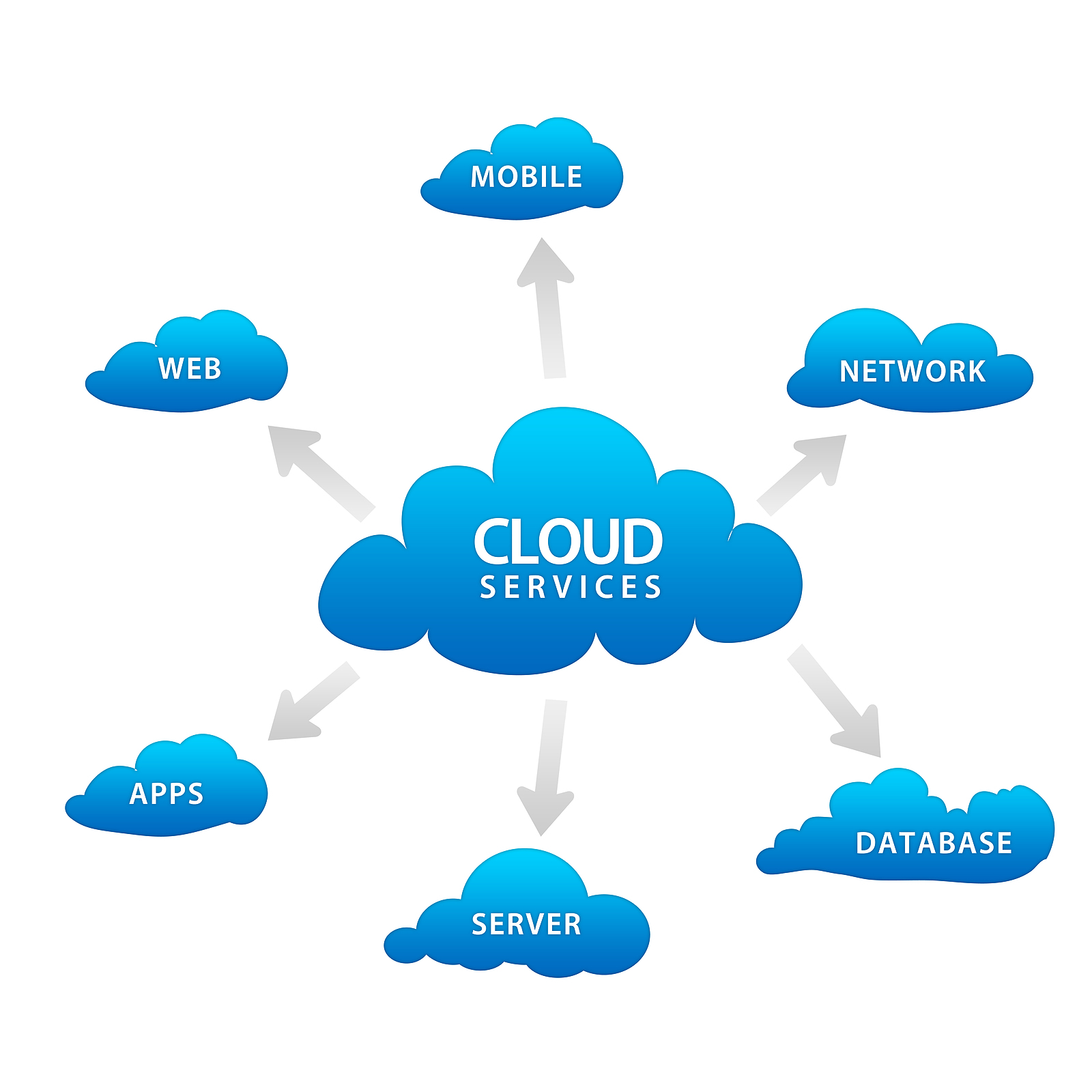Scalable Solutions: Harnessing the Power of Cloud Services
In the busy globe of electronic improvement, the utilization of scalable services through cloud solutions has come to be a crucial technique for businesses seeking to grow and adjust. The capability to seamlessly adjust resources, deal with changing workloads, and maximize performance without being connected to typical facilities limitations provides a peek right into the future of efficient and dexterous procedures. Exactly how exactly do these cloud services make it possible for such versatility and what effect could they have on the ever-evolving landscape of business operations?
Advantages of Cloud Scalability
When considering the benefits of cloud scalability, organizations can properly expand their sources to meet changing demands in a cost-effective manner. Cloud scalability refers to the capability of cloud services to suit differing work by rapidly and easily provisioning or de-provisioning sources as needed.
Additionally, cloud scalability offers businesses with the agility to react rapidly to market changes and consumer requirements. By leveraging scalable cloud remedies, companies can swiftly deploy new services, applications, or functions, allowing them to stay in advance of the competitors in today's fast-paced organization setting. Additionally, cloud scalability advertises effectiveness by maximizing source application, minimizing downtime, and improving total productivity. Overall, the benefits of cloud scalability equip businesses to operate more dynamically and competitively in the digital landscape.
Cost-efficient Solutions
Cloud services provide economical solutions that can assist companies decrease their IT expenses dramatically. One of the main advantages of cloud computer is its pay-as-you-go rates version, permitting services to pay only for the solutions and sources they use.
Furthermore, cloud solutions make it possible for companies to scale their resources according to their requirements, preventing the expenditures related to preserving excess capability. By leveraging the scalability of cloud services, companies can readjust their computer power, storage, and various other sources in real-time, ensuring optimal performance while maintaining expenses in check.
Furthermore, cloud suppliers typically offer affordable pricing strategies and discounts for long-lasting dedications, assisting businesses achieve even higher expense savings. On the whole, by relocating to the cloud, business can take advantage of affordable solutions that enhance efficiency and competitiveness in today's dynamic business atmosphere.
Improved Information Protection Actions
In today's quickly evolving electronic landscape, the implementation of enhanced information security procedures is extremely important for businesses leveraging cloud solutions to secure delicate info and mitigate possible cyber hazards. Improved data security procedures, multi-factor authentication, and regular safety and security audits are important components in fortifying data security within cloud atmospheres.
Moreover, the fostering of sophisticated hazard detection systems, such as invasion detection and prevention systems, can assist react and identify to safety and security incidents in real-time, enhancing total data safety and security position. Data loss avoidance devices and protected back-up options further make see it here sure business continuity and information honesty in the face of unexpected events like ransomware attacks or unintended deletions.
Conformity with sector laws and criteria, such as GDPR or HIPAA, is also important when storing and processing delicate information in the cloud. Cloud Services. Applying robust accessibility control devices and carrying out staff member training on cybersecurity finest practices are additional actions that can bolster information security initiatives in cloud-based procedures. By focusing on these enhanced safety actions, businesses can infuse trust amongst consumers and stakeholders while protecting their beneficial digital properties

Improved Efficiency and Rate
The mission for optimal efficiency and rate in cloud solutions continues to be a driving pressure behind technical advancements in the electronic realm. Enhanced efficiency and rate are essential variables that figure out the performance and effectiveness of cloud solutions for services and individuals alike. Cloud provider continuously aim to boost the efficiency of their systems by improving network facilities, optimizing data processing capabilities, and carrying out advanced caching mechanisms.
Reliable tons balancing techniques are utilized to distribute workloads evenly throughout web servers, making sure swift reaction times and marginal latency. In addition, innovations in equipment innovation, such as solid-state drives (SSDs) and high-speed networking devices, contribute to quicker data gain access to and transfer speeds. Via making use of content shipment networks (CDNs), cloud solutions can deliver internet material closer to end-users, reducing latency and enhancing general performance.

Scalability for Company Development
Guaranteeing the capacity to broaden procedures perfectly and successfully, scalability is a crucial aspect for organizations looking for continual growth within the cloud solutions landscape. Scalability allows businesses to adjust to transforming demands by quickly adjusting resources such as computing storage, power, and bandwidth. This adaptability is particularly useful for firms experiencing fast growth or fluctuating requirements.
With scalable cloud solutions, services can avoid the taxing and costly process of procuring and deploying extra equipment. Instead, they can promptly scale up or down based upon requirements, paying just for the resources used. This pay-as-you-go version not only improves cost-efficiency however likewise allows organizations to react swiftly to market shifts and opportunities.
Additionally, scalability advertises advancement and agility within services. By promptly scaling sources to support brand-new tasks or endeavors, business can explore new avenues for growth without being hindered by framework constraints. Inevitably, scalability equips services to expand their procedures efficiently and efficiently, laying a solid structure for long-term success in the vibrant business environment.
Final Thought

Cloud scalability refers to the capability of cloud solutions to fit differing work by promptly and conveniently provisioning or de-provisioning sources as required. One of the primary benefits of cloud computing is its pay-as-you-go prices design, enabling businesses to pay only for the resources and solutions they make use of. Boosted performance and rate helpful resources are crucial aspects that determine the effectiveness and effectiveness of cloud services for businesses and individuals alike - universal cloud Service.Making sure the capability to broaden procedures perfectly and successfully, scalability is a vital facet for businesses looking for continual growth within the cloud solutions landscape.In conclusion, cloud scalability provides various advantages for businesses, consisting of cost-efficient solutions, improved data safety and security actions, improved efficiency and speed, and the capacity to range for business growth